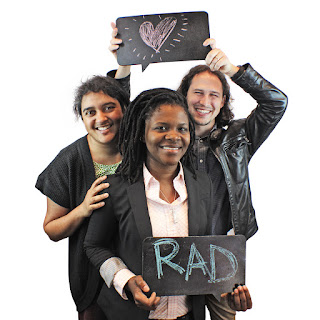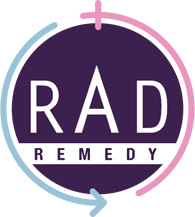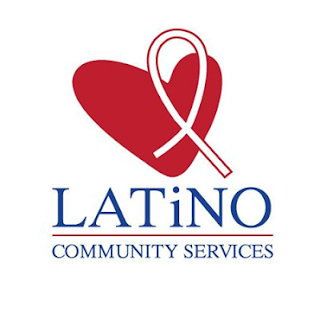By: Connie Reese, Founder & Executive Director, Simply Amazing You Are
As a domestic violence survivor, and advocate for survivors of domestic violence and intimate partner violence ("DV/ IPV"), it is important to recognize that people are less likely (and less able) to seek help. Isolation by an abuser or shame often prevent it. The COVID19 public health crisis has left even some of the longest standing integrated courts, designed to deal with protection orders and victim assistance, scrambling to cope with modernizing, introducing technology and restructuring interpreter services.
In unincorporated Miami-Dade, DV/IPV cases increased nearly 20 percent in April 2020, during the COVID "shelter-in-place" orders (The Women’s Fund Miami-Dade, 2020). While amazing local organizations, like the Women's Fund Miami-Dade, have focused awareness campaigns, it has been the experience of our organization, Simply Amazing You Are ("SAYA"), that these campaigns are most effective for those already connected to services with mandated reporters and close relationships with systems of justice.
 |
| Photo Source: USC Suzanne Dworak-Peck School of Social Work |
Due to lack of investment in stable, transitional housing (MiamiDade.gov lists only 2 transitional housing providers and 2 emergency shelters – of which congregate living risks in the time of COVID make them even less safe), much of the community needing the most help are at a loss or the system doesn't move fast enough to provide adequate interventions and in some cases are now no longer accessible at all due to victim/survivors' lack of broadband access. As much as some pundits bemoaned smartphones as a tool subsidized by anti-poverty programing, for many of my clients, those phones are the difference between life and death by way of a simple internet connection.
Complicating considerations for at risk communities, the Center for Disease Control & Prevention ("CDC") recognizes "...studies suggest that IPV can be both a risk factor for HIV, and a consequence of HIV" (CDC, 2014). With Miami-Dade's historically high rate of new HIV diagnoses, reduced access for community-based HIV testing, and lack of investment in areas like Brownsville and Liberty City as a matter of geographic segregation and ghettoization, the area is poised to be an example of how public policy fails to address intersections of health.
Advocates and funders would do well to consider the most good can be achieved by making remarkable investments in local community-based organizations, rooted in neighborhood-oriented community outreach and "shoe leather" service provision. Much of the local community can't meaningfully enjoy the temporary flexibility for telehealth and linkage to care and services because the very entities providing these services were not prepared or supported in becoming prepared for such modernizations. And Miami is not unique.
Across the nation, deeply impoverished neighborhoods experience the same barriers to care.
We are quickly running out of time to change the inevitable course of increased domestic violence, deaths from domestic violence, more cases of COVID-19, more HIV diagnoses, less care, and less public trust in these entities meant to serve us and keep us safe. That's the core of this need, as our systems show just how fragile they are, as we see existing disparities become exacerbated, communities getting fewer of their needs met will ultimately come to trust us, all of us, less and less. The time to act, the time to make unprecedented, bold moves, is now.
About Simply Amazing Your Are. SAYA is an empowerment focused intimate partner violence prevention and intervention non-profit organization in Miami, FL. SAYA's programming includes direct assistance like escape planning and protective order assistance, as well as policy advocacy campaigns, referral for support services, and linkage to care and victim services navigation. SAYA currently relies on a word-of-mouth model in order to ensure the safety of our clients. Through the COVID pandemic, SAYA has also partnered with Panera Bread end night donations to provide to IPV survivors facing homelessness or the risk of homeless. Donate to Simply Amazing You Are.
References:
- Centers for Disease Control & Prevention (February 2014). Intersection of Intimate Partner Violence and HIV in Women. U.S. Department of Health & Human Services. Retrieved online at https://www.cdc.gov/violenceprevention/pdf/ipv/13_243567_green_aag-a.pdf?response_type=embed#:~:text=Studies%20of%20HIV%2DPositive%20Women,and%20a%20consequence%20of%20HIV.
- Women’s Fund Miami-Dade (2020, July 17). The Women’s Fund Miami-Dade Launches Domestic Violence Awareness Campaign. PRWeb.com. Retrieved online at https://www.prweb.com/releases/the_womens_fund_miami_dade_launches_domestic_violence_awareness_campaign/prweb17265119.htm.
Disclaimer: Guest blogs do not necessarily reflect the views of the ADAP Advocacy Association, but rather they provide a neutral platform whereby the author serves to promote open, honest discussion about public health-related issues and updates.














